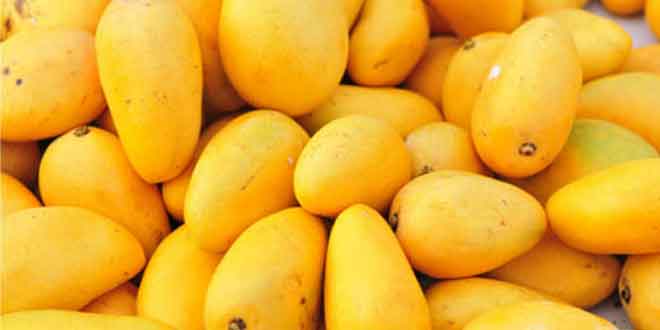
The Juicy King of Fruits: Mangoes
Mangifera indica, commonly known as mango is labelled as the “king of fruits.” Eaten all over the world, it is renowned for its distinct taste along with its vibrant yellow color. May it be kids or adults, we all wait anxiously for the summer season to get to taste this amazing fruit.
The actual word ‘Mango’ came from manna, a Malayalam word, when the Portuguese and Kerala initiated the spice trade in 1498.
Cultivation
South Asia is known to cultivate mangoes for thousands of years. As time progressed, East Africa stepped into the mango cultivation in the 10th century. Brazil, West Indies, Mexico and many others followed suit.
The tropical climate is best suited for the cultivation of this amazing fruit. According to the Food and Agriculture Organization of the United Nations, India cultivates the highest amount of mangoes (15.25 million tons) with the Republic of China following behind with 4.40 million tons. Pakistan produces 1.95 million tons. This survey was carried out in 2012.
Nutritional Value
Mangoes are a supreme blend of nutrition. It is highly rich in vitamins mainly Vitamin C (60%) also called as ascorbic acid and Vitamin A (21%). It also has traces of minerals such as phosphorus, iron, calcium, zinc, magnesium and manganese. It also has antioxidants such as zeaxanthine and beta-carotene.
Eating Health Benefits of Mangoes
- Protection against Cancers:
According to a new research, it has been found out that mangoes assist in providing defense against colon, breast and prostate cancers. This fruit contains an antioxidant termed as polyphenolic antioxidant which is responsible for the protective mechanism.
- Better Vision and Skin:
Mangoes are enriched with Vitamin A and flavonoids such as beta-carotene, alpha-carotene and beta-kryptoxanthin. These biochemical constituents of this fruit help in maintenance of healthy mucus and skin. Along with that it also helps in maintenance of visual acuity. Studies show that fruits which are enriched with carotenes help to avoid cancers of the lung and oral cavity (mouth).
- Maintaining Good Cardiovascular Health:
This amazing fruit is also high in potassium content. A 100 grams of this fruit provides around 156 mg of potassium. Potassium, an important biochemical constituent of the body promotes good cardiovascular health i.e. good blood flow and maintenance of blood pressure.
- Production of Red Blood Cells:
Copper is another metal which gets added to the list when it comes to the essential nutrients required by the body. Thankfully, mangoes are a great source. Copper is responsible for the production of red blood cells and also for the activation of many enzymes, involved in the different body functions.
- Rich Source of Vitamins:
Vitamin B-6, Vitamin C, Vitamin E and Vitamin K are included in the nutritional goodness which a mango provides. Vitamin B-6 is also called as pyridoxine, and is responsible for the production of GABA, a chemical that sends signals to one nerve cell to another. It also controls the homocysteine levels. Vitamin C helps to build a stronger immunity against infectious agents. Vitamin E inhibits platelet aggregation, protects lipids and prevents the oxidation of poly-unsaturated fatty acids (PUFA). Vitamin K helps in the maintenance of bone growth.
- Helps In Digestion:
Because of the presence of fiber and water content, mangoes assist in avoiding bowel irregularities like constipation and maintains a healthy, active digestive tract.
- Prevention of Asthma:
Studies show that people who consume beta-carotene in their diets, can help themselves in avoiding asthma. For those who suffer from asthma, mangoes are great as they contain this beta-carotene component.
So, here you are. These are some of the outstanding benefits which this great fruit can provide us with. Enjoy your summer and most of all enjoy the mangoes.

